Recently, Janet Tryhuba, Executive Director of the Edmonton Down Syndrome Society, met with GLOBAL Vice President – Strategic Alliances, David Tolleson, to discuss her career and to share more about one of Canada’s leading Down syndrome organizations.
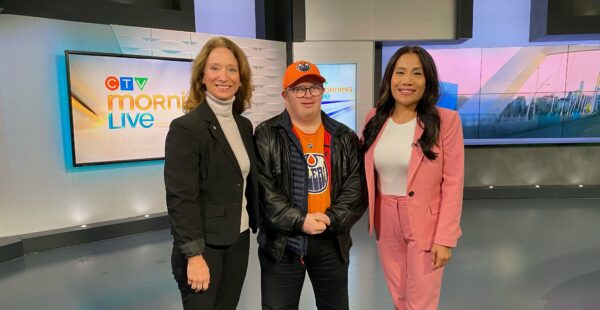
DAVID: Tell us a bit about yourself and how you got involved with the Edmonton Down Syndrome Society (EDSS).
JANET: I’ve always worked for charities throughout my career. I worked for the YMCA for over 25 years in progressive roles and that really solidified my interest in working with people from a variety of backgrounds in topics of health and wellness. I have a degree in recreation administration. The YMC
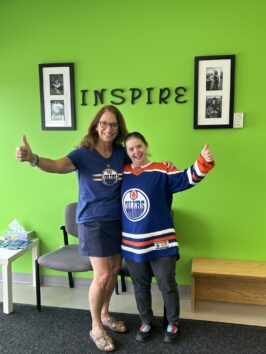
A taught me about the goals of charities around philanthropy and volunteerism. I’ve volunteered a lot for causes that are important to me and my community. My husband and I have two children, so a lot of volunteering occurred around activities involving them. The kids are grown now – the oldest has two children of his own – so my husband and I are enjoying being grandparents. My faith community is also very important to me. As my career at YMCA progressed, I evolved more into philanthropy and that became my focus in later years. I was responsible for all the fund development and marketing communication for YMCA here in northern Alberta. From there I went onto seven years with a local museum, the Fort Edmonton Foundation. Culture and history played a big role in that organization, as well as celebrating our city’s natural history and the people who have lived here. We raised a little over $3 million from our local community but leveraged $150 million in government grants. I really enjoyed that. I thought I might retire after that but ended up doing a little project management instead. As a result of that, I was recruited into my current position at EDSS. It’s a really good fit for me. I love the community, I love what we stand for, and I’ve really enjoyed helping the organization reach more of its full potential. This year we’re going to celebrate our 30th anniversary!
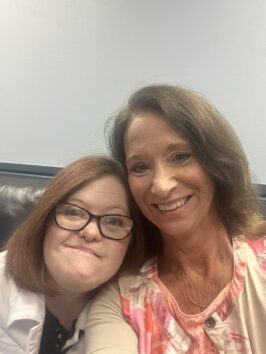
DAVID: That’s terrific! Do you have a personal connection to Down syndrome?
JANET: I do, but not in the usual way. My sister and brother-in-law have always cared for adults with Down syndrome in their home. They’re both social workers and previously worked in group homes. They decided it would work better to have individuals come live with them in their home rather than them going to a group home, so they made that shift about 25 years ago, about the time they were having the last of their three children and continue to this day. It’s been a wonderful journey for me and my family as we’ve gotten to know these new additions to their family.
DAVID: And, has Edmonton always been home for you?
JANET: For most of my adult life. I came here for university and never left. I grew up about 3 hours from here in a small town of about 1,500 people.
DAVID: I’m interested to learn more about your programs for adults, children and families, including The Joey Moss Literacy Centre for Excellence.
JANET: Well, I’ll start by asking if you know who Joey Moss is?
DAVID: I didn’t until I looked him up!
 JANET: Joey was a man with Down syndrome who was embraced by our city and our national hero, Wayne Gretzky, the star hockey player. Back in the day, Wayne was dating Joey’s older sister, so Joey got connected to the Edmonton Oilers that way and eventually became their locker room attendant for at least 25 years. When he retired at age 55, the Oilers gave him a proper send-off, even hanging a banner with his name in the arena. He was so loved by the team and our city. He had so many things about him that the community also loved, like at a game the camera would always focus on Joey, because he would sing our national anthem, “O Canada”, with such joy and animation. When you saw him, you couldn’t help but join in and sing louder! He really increased awareness of Down syndrome and people saw what a capable young man he was and what a great job he did. He really became a symbol of awareness and hope. And it wasn’t just with the Oilers. Our professional football team, the Elks, also had him work as their locker room attendant during the Oilers’ offseason. He was remarkable and when his parents were interviewed, they said they just raised him just like his 12 siblings. When we were building our literacy program and resource library, the Oilers gave a lovely gift in Joey’s name.
JANET: Joey was a man with Down syndrome who was embraced by our city and our national hero, Wayne Gretzky, the star hockey player. Back in the day, Wayne was dating Joey’s older sister, so Joey got connected to the Edmonton Oilers that way and eventually became their locker room attendant for at least 25 years. When he retired at age 55, the Oilers gave him a proper send-off, even hanging a banner with his name in the arena. He was so loved by the team and our city. He had so many things about him that the community also loved, like at a game the camera would always focus on Joey, because he would sing our national anthem, “O Canada”, with such joy and animation. When you saw him, you couldn’t help but join in and sing louder! He really increased awareness of Down syndrome and people saw what a capable young man he was and what a great job he did. He really became a symbol of awareness and hope. And it wasn’t just with the Oilers. Our professional football team, the Elks, also had him work as their locker room attendant during the Oilers’ offseason. He was remarkable and when his parents were interviewed, they said they just raised him just like his 12 siblings. When we were building our literacy program and resource library, the Oilers gave a lovely gift in Joey’s name.
DAVID: What other programs do you offer?
JANET: We have a speech pathologist who delivers speech therapy at our office. We also have literacy built into our adult day program in a pretty significant way. Our day program has mostly young adults, but we do have participants all the way up into their 40’s and 50’s, which makes for a nice range of people. We also focus on communication and social skills in terms of relationship building. For example, we have a musical theater program, and the teachers focus on respect and taking responsibility for oneself, along with having fun. We also have youth and adult basketball programs and a weekly bowling group. And on alternating Fridays we offer an adult outing group or a youth drop-in program here at our center – lots of fun and games led by volunteer university students! We’ve also just launched a dance program this year.
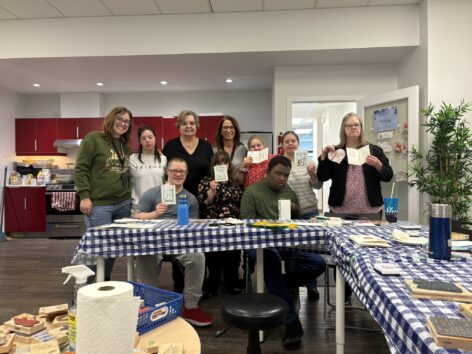
The next few months will be even busier as we offer summer day camps. One of our original core programs that is still popular is our drop-in preschool, where parents will bring their children and use our playroom and other facilities while the parents get to know one another. Along those lines, we also have workshops that focus on the earliest years. In a baby’s first year, we reach out to new parents, connect them to other parents, and also offer our one-day “Wonder Years” workshop to get them off on the right foot. Hopefully, they’ll continue to engage more with our community after that.
We also spend a good bit of time fundraising. Because of that, most of our programs are free, which is important to the families we serve. We serve a large geographic area. Pretty much all of northern Alberta, but we also have families coming to us from our far north, into the Northwest Territories, as well as neighboring Saskatchewan.
DAVID: What are the opportunities and challenges that you see on the horizon for people with Down syndrome in Canada?
JANET: The top issue affecting our families is the cutbacks in government services for children and adults with disabilities. We did see small progress in that our federal government approved a small tax credit for individuals with disabilities. Unfortunately, provinces were given the opportunity to claw that money back and some, like ours, have, which is ridiculous. I hate to use the word “fight”, but I’m afraid that’s what families must do – fight their government – which they really shouldn’t have to do. The other big challenge is finding housing for adults with disabilities. There aren’t great options, and it’s made worse by the current housing crisis in our country. It’s a complex issue and getting more difficult as the national housing shortage becomes more severe. Thankfully, we just resolved a third major challenge, which was having enough educational assistants in our provincial school system. The assistants went on strike, so kids with disabilities were told to stay home. We thought the school systems should reallocate teachers to make sure every student’s needs were met, rather than tell one group of children they just couldn’t come to school. It was a terrible situation, and our kids lost out on several months of education. It created a lot of stress and anxiety for families when times are already challenging.
On a more positive note, we are seeing the positive impact of early interventions, particularly in speech therapy. The kids who we’ve been able to work with are coming out further ahead than those who haven’t had early intervention. It helps us make arguments to the government about the importance of investing in early education. I’m also heartened by the progress in medical research, treatment, and care, and the growth in life expectancy. We’re a bit behind your country in that area and we have many challenges with our medical system, but we’re glad to have positive role models to emulate.
 DAVID: You touched on the importance of medical research and medical knowledge and services. We’re grateful that the Edmonton Down Syndrome Society is supporting our work as a GLOBAL Member and that you’re also helping us update and expand the GLOBAL Adult Guidelines with a generous multi-year pledge. Why is this project and GLOBAL’s other research and medical care work important to you and the families you serve?
DAVID: You touched on the importance of medical research and medical knowledge and services. We’re grateful that the Edmonton Down Syndrome Society is supporting our work as a GLOBAL Member and that you’re also helping us update and expand the GLOBAL Adult Guidelines with a generous multi-year pledge. Why is this project and GLOBAL’s other research and medical care work important to you and the families you serve?
JANET: It’s extremely important, because you’re making progress in an area where I’d like to see our country do better. By supporting your work, I can point to that and say we’re doing what we can and hope that others, like medical practitioners, will do what they can by adopting the Guidelines for their practices and/or encourage more research in our country.
One area where we’re making a difference is reaching college students before they become doctors with community service projects. This year, we had over 40 students participate. It has really helped us increase awareness in that community.
DAVID: Is there anything we haven’t discussed that you’d like to share?
JANET: We are working to improve our own high standards through accreditation, which will help us gain more access to provincial government funding for our programs. We’re very close and looking forward to achieving that recognition!





 JANET: Joey was a man with Down syndrome who was embraced by our city and our national hero, Wayne Gretzky, the star hockey player. Back in the day, Wayne was dating Joey’s older sister, so Joey got connected to the Edmonton Oilers that way and eventually became their locker room attendant for at least 25 years. When he retired at age 55, the Oilers gave him a proper send-off, even hanging a banner with his name in the arena. He was so loved by the team and our city. He had so many things about him that the community also loved, like at a game the camera would always focus on Joey, because he would sing our national anthem, “O Canada”, with such joy and animation. When you saw him, you couldn’t help but join in and sing louder! He really increased awareness of Down syndrome and people saw what a capable young man he was and what a great job he did. He really became a symbol of awareness and hope. And it wasn’t just with the Oilers. Our professional football team, the Elks, also had him work as their locker room attendant during the Oilers’ offseason. He was remarkable and when his parents were interviewed, they said they just raised him just like his 12 siblings. When we were building our literacy program and resource library, the Oilers gave a lovely gift in Joey’s name.
JANET: Joey was a man with Down syndrome who was embraced by our city and our national hero, Wayne Gretzky, the star hockey player. Back in the day, Wayne was dating Joey’s older sister, so Joey got connected to the Edmonton Oilers that way and eventually became their locker room attendant for at least 25 years. When he retired at age 55, the Oilers gave him a proper send-off, even hanging a banner with his name in the arena. He was so loved by the team and our city. He had so many things about him that the community also loved, like at a game the camera would always focus on Joey, because he would sing our national anthem, “O Canada”, with such joy and animation. When you saw him, you couldn’t help but join in and sing louder! He really increased awareness of Down syndrome and people saw what a capable young man he was and what a great job he did. He really became a symbol of awareness and hope. And it wasn’t just with the Oilers. Our professional football team, the Elks, also had him work as their locker room attendant during the Oilers’ offseason. He was remarkable and when his parents were interviewed, they said they just raised him just like his 12 siblings. When we were building our literacy program and resource library, the Oilers gave a lovely gift in Joey’s name.
 DAVID: You touched on the importance of medical research and medical knowledge and services. We’re grateful that the Edmonton Down Syndrome Society is supporting our work as a GLOBAL Member and that you’re also helping us update and expand the GLOBAL Adult Guidelines with a generous multi-year pledge. Why is this project and GLOBAL’s other research and medical care work important to you and the families you serve?
DAVID: You touched on the importance of medical research and medical knowledge and services. We’re grateful that the Edmonton Down Syndrome Society is supporting our work as a GLOBAL Member and that you’re also helping us update and expand the GLOBAL Adult Guidelines with a generous multi-year pledge. Why is this project and GLOBAL’s other research and medical care work important to you and the families you serve?
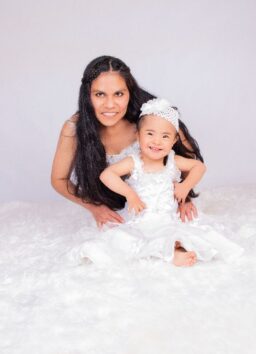
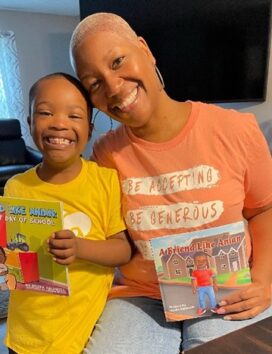
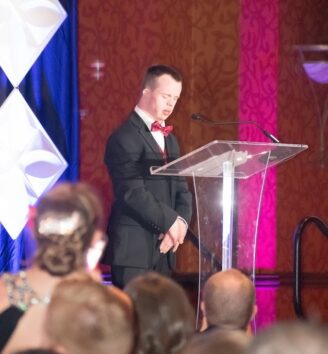 The Down Syndrome Alliance of the Midlands hosted its 7th annual Building the Future Gala on May 3rd, bringing together more than 400 passionate supporters, advocates, and community leaders for an unforgettable evening of celebration and impact. The event raised an incredible $212,000, with $10,000 of that total directly benefiting Global Down Syndrome Foundation in support of its groundbreaking research and advocacy work.
The Down Syndrome Alliance of the Midlands hosted its 7th annual Building the Future Gala on May 3rd, bringing together more than 400 passionate supporters, advocates, and community leaders for an unforgettable evening of celebration and impact. The event raised an incredible $212,000, with $10,000 of that total directly benefiting Global Down Syndrome Foundation in support of its groundbreaking research and advocacy work. syndrome community. The Down Syndrome Alliance of the Midlands was proud to recognize GLOBAL as a key partner in this mission, whose support and leadership continue to inspire local and national change.
syndrome community. The Down Syndrome Alliance of the Midlands was proud to recognize GLOBAL as a key partner in this mission, whose support and leadership continue to inspire local and national change. • Exceptional Advocate Award: Daniel Holm– Honored for his courage, voice, and impact as a self-advocate.
• Exceptional Advocate Award: Daniel Holm– Honored for his courage, voice, and impact as a self-advocate.

 cell phones back then, so how we found others with children with Down syndrome is amazing, but 5 area families did find each other in the ensuing two years. We all had a horrible experience with both the diagnosis and a lack of support. So that was the impetus for the founding of DSAJ. We started with medical outreach to ensure healthcare professionals would no longer say the words that were used to describe our babies and to educate doctors that these are lives worth living and that have value. I became Executive Director in 2008. It’s been almost my entire adulthood and it’s been beautiful because I’ve seen the growth in local and national resources. There used to be nothing here and when you see that growth there’s a deep amount of pride and inspiration that comes from that. On the personal front, we have four children and seven grandchildren, so that keeps us super busy and, thankfully, Nick is happy and leading the life he wants to lead.
cell phones back then, so how we found others with children with Down syndrome is amazing, but 5 area families did find each other in the ensuing two years. We all had a horrible experience with both the diagnosis and a lack of support. So that was the impetus for the founding of DSAJ. We started with medical outreach to ensure healthcare professionals would no longer say the words that were used to describe our babies and to educate doctors that these are lives worth living and that have value. I became Executive Director in 2008. It’s been almost my entire adulthood and it’s been beautiful because I’ve seen the growth in local and national resources. There used to be nothing here and when you see that growth there’s a deep amount of pride and inspiration that comes from that. On the personal front, we have four children and seven grandchildren, so that keeps us super busy and, thankfully, Nick is happy and leading the life he wants to lead.
 In addition to that, we launched an employment program five years ago. I only know of a handful of affiliates that have one. We’ve had such success with it. I’m always encouraging other Executive Directors to look into it. It’s not as scary as you think and it’s so successful! I think that comes from having known these children since birth and then seeing them grow up and graduate and then have to go out into a world that doesn’t know them, their personalities, their goals, their strengths, or their family dynamics. To be able to still nurture them on their journey by offering this program was ideal. I’ve seen our success, and the program is continuing to grow. I’m glad we ignored the fear of failing and embraced a new opportunity to serve.
In addition to that, we launched an employment program five years ago. I only know of a handful of affiliates that have one. We’ve had such success with it. I’m always encouraging other Executive Directors to look into it. It’s not as scary as you think and it’s so successful! I think that comes from having known these children since birth and then seeing them grow up and graduate and then have to go out into a world that doesn’t know them, their personalities, their goals, their strengths, or their family dynamics. To be able to still nurture them on their journey by offering this program was ideal. I’ve seen our success, and the program is continuing to grow. I’m glad we ignored the fear of failing and embraced a new opportunity to serve. it. The folks at GLOBAL are my people. You are doing things that no one else is doing or if they are doing it, they’re not doing it as well. I believe you stay in your lane well and stay focused and don’t get distracted. I love watching progress and I’ve seen it with GLOBAL. For example, the Adult Guidelines. Who would’ve thought those ever would’ve been published? So many organizations do the same thing over again or do something new that isn’t really needed or impactful. GLOBAL saw a critical need for adults and didn’t give up on it even though it was difficult. I was with a group of doctors just yesterday and they didn’t know that autoimmune issues are such an important part of our people’s lives. They don’t have a clue. And, what’s the point of living into your 60’s and 70’s if you don’t live well and aren’t happy? GLOBAL is actively working on that.
it. The folks at GLOBAL are my people. You are doing things that no one else is doing or if they are doing it, they’re not doing it as well. I believe you stay in your lane well and stay focused and don’t get distracted. I love watching progress and I’ve seen it with GLOBAL. For example, the Adult Guidelines. Who would’ve thought those ever would’ve been published? So many organizations do the same thing over again or do something new that isn’t really needed or impactful. GLOBAL saw a critical need for adults and didn’t give up on it even though it was difficult. I was with a group of doctors just yesterday and they didn’t know that autoimmune issues are such an important part of our people’s lives. They don’t have a clue. And, what’s the point of living into your 60’s and 70’s if you don’t live well and aren’t happy? GLOBAL is actively working on that.




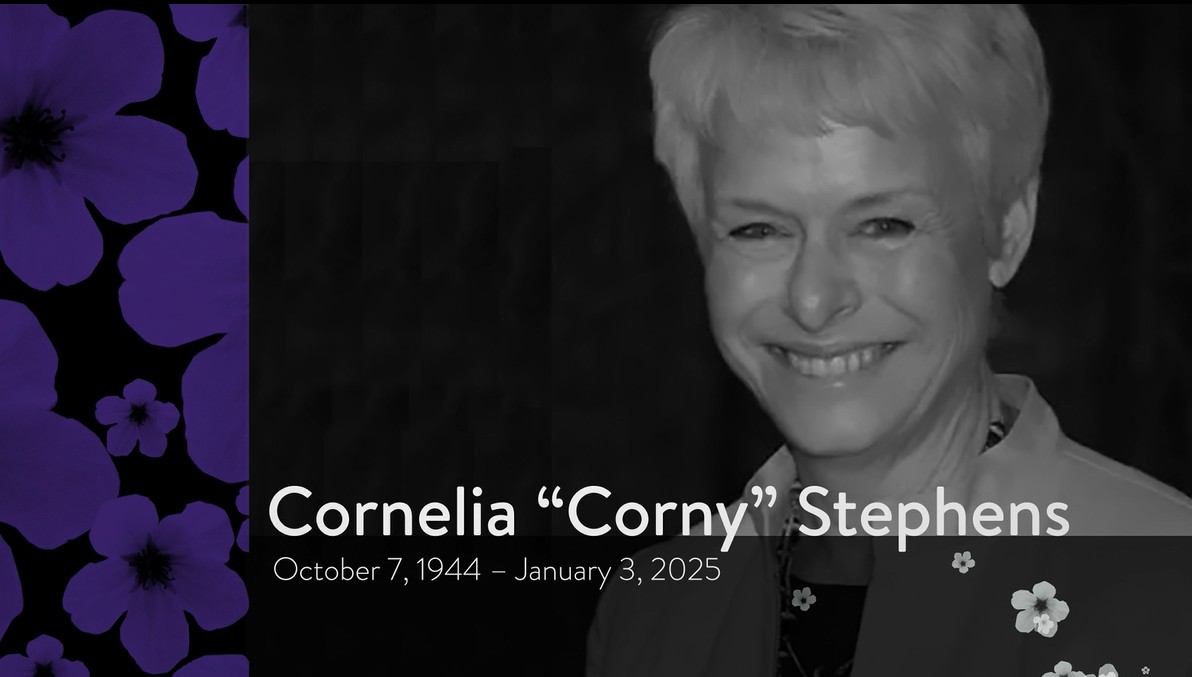

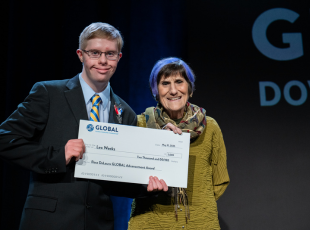


 With the help of GLOBAL Ambassador Tucker Emry and his family, Erin Book Mullen, co-chairs Natalie Farr Harrison and her husband Guy Harrison, and our amazing
With the help of GLOBAL Ambassador Tucker Emry and his family, Erin Book Mullen, co-chairs Natalie Farr Harrison and her husband Guy Harrison, and our amazing 

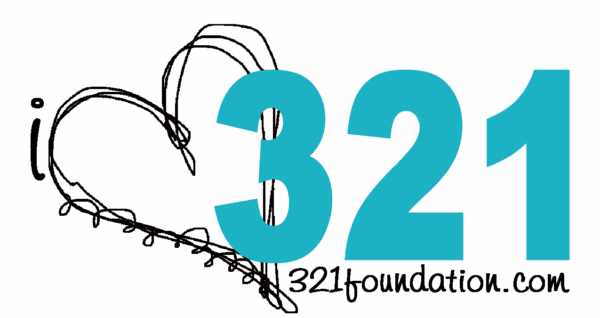
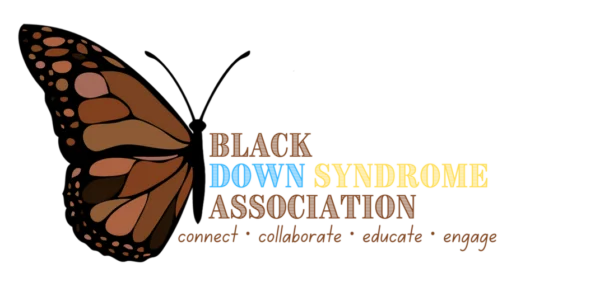





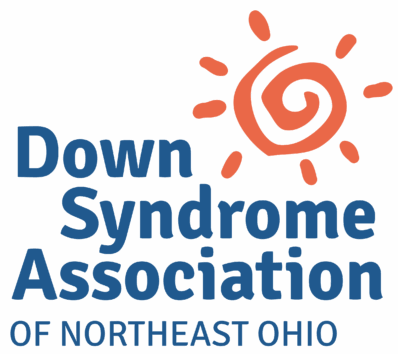



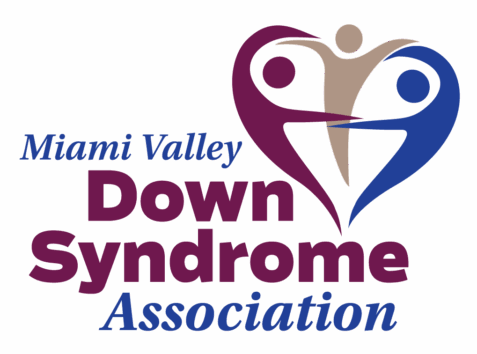

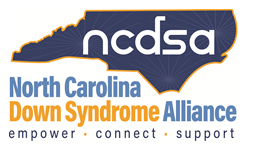







 Experience our inspirational and groundbreaking videos and photos. Our children and self-advocates are beautiful AND brilliant!
Experience our inspirational and groundbreaking videos and photos. Our children and self-advocates are beautiful AND brilliant! Make sure your local Representatives are on the Congressional Down Syndrome Task Force.
Make sure your local Representatives are on the Congressional Down Syndrome Task Force.